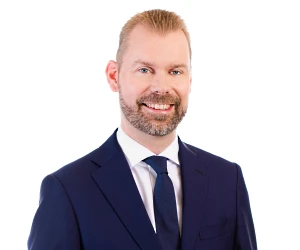Kindred aims to make revenue fully sustainable by 2023

Kindred Group aims to ensure that it does not generate any revenue from customers gambling in a harmful and unsustainable manner by 2023, after reporting a steady increase in uptake of its responsible gaming tools and safeguards for 2019.
The number of customers using non-mandatory control tools increased from 11% to 11.5%, the operator's annual sustainability report revealed. However, this increase was below Kindred’s target, set in 2018, for a 50% rise in the rate of adoption for these tools.
Meanwhile, 76.8% of those contacted by the operator because of their play patterns suggseted they were gambling unsustainabliy were considered to have adopted a “healthier gambling approach” following the intervention, up from 72% in 2018.
Deposit limits were set by 6.6% of Kindred customers, and by 17.9% of customers who were flagged in Kindred’s players safety early detection system (PS-EDS).
Reality checks, used to let customers stay aware of time and money spent gambling, were used by 2.8% of all customers and 2.4% of PS-EDS customers while loss limits were set by 0.4% of customers, and 2.7% of PS-EDS customers.
Self-exclusion tools were used by 4.5% of customers and 10.7% of those flagged by PS-EDS.
In the wake of an ongoing debate over the merits of voluntary vs mandatory limit-setting measures, Kindred chief executive Henrik Tjärnström (pictured) argued that voluntary restrictions were the more effective effective. Other operators, such as Paf, and critics of the gambling have recently spoken out against leaving it up to customers to set limits.
“Research shows that the most efficient tools are voluntary rather than mandatory but, depending on the jurisdiction, we offer what local gambling regulation requires or recommends,” he said.
Looking to the future, Tjärnström said Kindred has set an goal of generating no money from harmful gambling by 2023, which he still believes to be within reach.
“I have heard people say that this is not possible; that we cannot possibly know if a customer has a problem when he or she opens an account with us,” he said. “This is true, today.
“However, I firmly believe that the biggest opportunity in reaching our ambition lies within the massive technology revolution happening as we speak.
“By 2023, I am convinced that the use of artificial intelligence, computing capacity, access to data and the introduction of 5G infrastructure across the world will push harmful gambling, money-laundering, fraud, match-fixing and other destructive behaviours off of digital gambling platforms.”
The report also revealed that Kindred became an increasingly regulated business in 2019, with almost two-thirds of revenue coming from locally regulated markets in the year. The contribution from markets in which it holds a licence grew from 43% in 2018 to 59% in 2019, thanks in part to the re-regulation of the Swedish market from January 2019.
Kindred chief executive Henrik Tjärnström said that this figure was “a clear indication that [Kindred wants] to contribute to our communities in every way possible.”
Kindred also achieved success in other areas of sustainability, with the business reducing CO2 emissions per employee by 11.4% and offsetting its entire CO2 contribution. In addition, 88% of Kindred employees said Kindred was “a great place to work” and more than 85% used extra paid leave to contribute to local communities.
The operator also paid £226m in taxes in 2019, as well as around £90m to sports teams through sponsorships.
“For every pound sterling in proposed dividend to shareholders, Kindred generated £5.7 in tax paid, and £0.8 in sponsorships to sports,” Tjärnström said.
The operator’s responsible gambling report also included input from experts in sustainability, including Epic Risk Management chief executive Paul Buck, who said the goal of no harmful gambling revenue by 2023 was unlikely to be achieved.
“I think Kindred has set a very ambitious, but probably not achievable ambition,” Buck said. “Kindred is already industry leading in their responsible gambling work, but no matter how much good an operator does, it is unrealistic to have no harm at all.”
